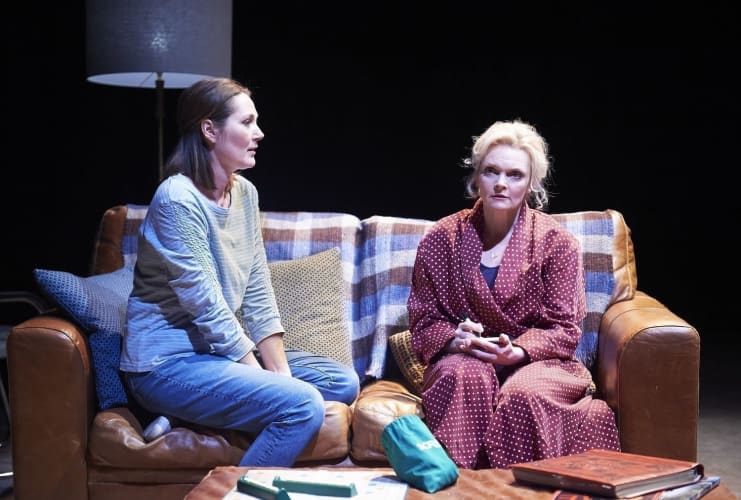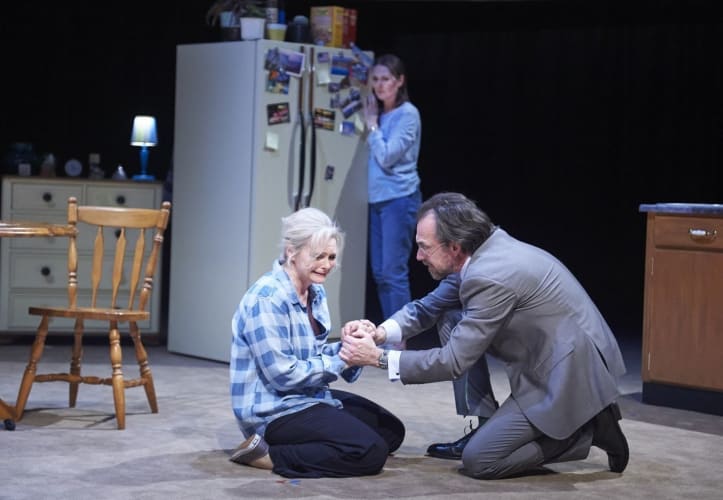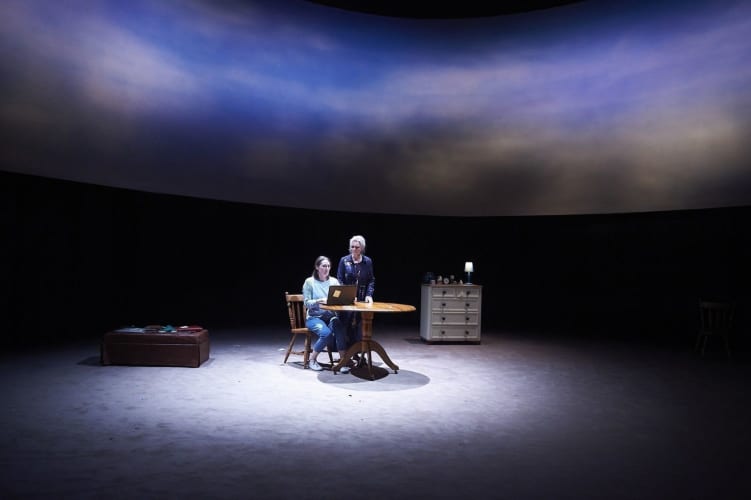Based on a best-selling novel, this stage version of Still Alice predates by a year the critically-acclaimed film adaptation featuring Julianne Moore. It receives its UK première as part of West Yorkshire Playhouse’s “Every Third Minute” festival, curated by people living with dementia, and their supporters, in exploration and celebration of “theatre, dementia and hope”.
Dementia (here in the form of Alzheimer’s) is a topic only rarely tackled in theatrical form, possibly due to the inherently interior worlds involved. In researching the topic, director David Grindley and his team took on a consultant, Wendy Mitchell, who is herself living with dementia. Mitchell’s work with the company clearly supported them in producing a sensitive, plausible portrait of a woman in her early fifties faced with the prospect of her memories and other mental processes crumbling around her.
What results is an at times moving but oddly underpowered piece of theatre. Christine Mary Dunford’s adaptation splits the central role of Alice so we see the person herself, played by Sharon Small, as well as her inner voice (Ruth Gemmell). The pair interact frequently, with some clever passages in which we witness Small’s Alice apparently withdraw into herself in the face of questioning by doctors, for instance—when really all she is doing is attempting to focus on the reassurances and reminders provided by her internal monologue.
Generally, though, the device makes for a static and somewhat inert piece of drama. This impression is furthered by the lack of real drama in the family relations around Alice. Her husband (Dominic Mafham), like Alice, is a relatively high-flying academic—though not as fêted as his wife. Their children are a successful lawyer who’s a dutiful son (Andrew Rothney), and a more creative, spiky daughter (Alaïs Lawson) who’s desperate to become an actor. But these characters are quite thinly sketched, and the potential tensions within them were for me underexplored by the script.
Jonathan Fensom’s set begins cluttered with various locations; these are gradually wheeled off and expanded out as Alice’s grip on her surroundings is shaken. Here, though, the direction does not help, with the fussy repositionings between most scenes introducing ponderous pauses in the narrative; I yearned for more sense of the bewildering onset of this loss of bearings, rather than the slow sensation of time ticking by.
The curved wide-screen cyclorama which dominates the width of the stage backgrounds the action with an impressionistic wash of colours, but these shift only incredibly subtly, and the only other use of the screen is to project the month and year of the action as it passes by. For such an overpowering backdrop it feels underused, and the spelling out of the timespan feels earnest and cumbersome rather than enlightening.
There are positives, and indeed the finest of these is Sharon Small’s powerful, compelling central performance. She vividly conveys the impression of an intelligent, driven woman whose grip on her landscape—both actual and interior—falters and then fails altogether. At its most moving, the play shows us her confusion, panic and finally devastation when she loses her way—first when out on a run in her neighbourhood then, even more painfully, in her own house.
Despite my caveats about the structure of the dual role, Ruth Gemmell also performs impeccably, with understated conviction, and the pair work very well together.
Overall, though, this feels like a worthy but flawed attempt to convey inner worlds in theatrical form. There is a sadness and a poignancy to the condition explored, which is sometimes touched upon here. While dementia, illness and ageing are rarely tackled in the theatre, there have been plays which provide more dynamic takes on ageing and inoperable medical conditions, from Abi Morgan’s Lovesong to Bryony Lavery’s A Wedding Story, which provides the closest parallel to this piece.
In the shadow of such lyrical, allusive and hopeful texts, Still Alice feels well-meaning but underwhelming.


